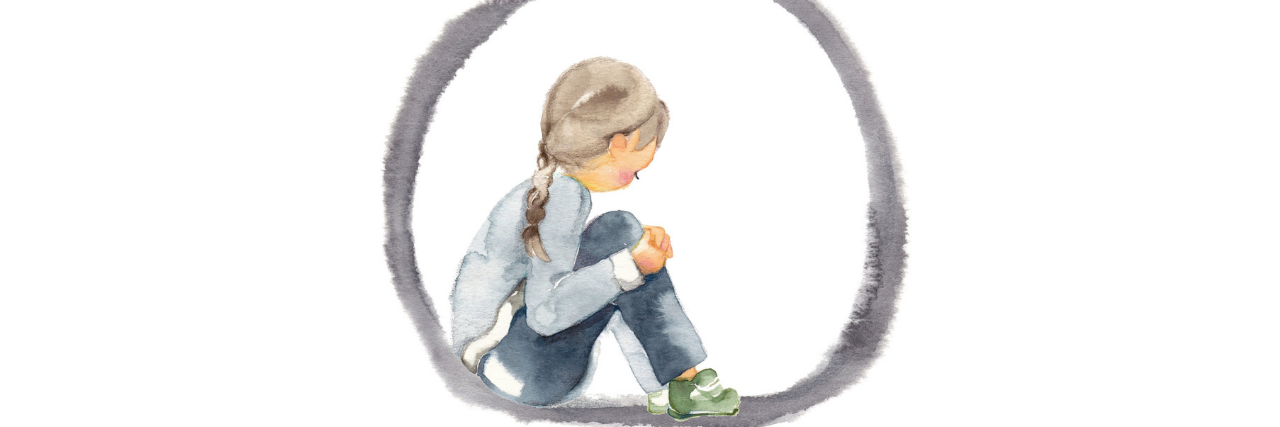Why Childhood Trauma Caused Me to Seek Emotionally Unavailable Partners
Editor's Note
If you’ve experienced domestic violence or emotional abuse, the following post could be potentially triggering. You can contact The National Domestic Violence Hotline online by selecting “chat now” or calling 1-800-799-7233. You can also contact the Crisis Text Line by texting “START” to 741741.
Many of us have experienced some type of emotional or physical trauma, as children and as adults. Trauma triggers the fight-or-flight response. Emotional abuse triggers the same chemical response as physical abuse. The brain, especially a child’s brain, can’t assess the level of danger it’s dealing with. Having a parent scream at you is going to evoke the same chemical response as having a parent knock you across the room. The brain interprets both scenarios as life threatening.
I remember visiting a girlfriend’s house and watching her interact with her father when he came home from work. They were thrilled to see one another. As soon as the door opened, she ran to him and he lifted her high into the air, both of them laughing infectiously.
That wasn’t what it was like at my house. At my house, we avoided being anywhere near the front door when my father came home. He either came home quiet and sullen, or he came home and immediately began hurling insults and accusations at my mother. Or me.
I got used to that. I was never entirely desensitized to it, but I got used to it. I accepted it, as best I could, and formulated strategies for getting the hell out of a very unhappy home. My primary strategy was to do well in school so I could go to college. I spent most of my time in my room studying. I recognized escaping poverty was one way I could change the dynamics in my own life.
There are some lifelong patterns I’ve developed as a result of childhood trauma. When you experience a frequent fight-or-flight response, your brain gets used to it, expects it and after a while, it can actually change your neurobiology.
I’m well into middle age, and I’ve noticed if I sense things are going too well for too long, I begin to wonder when the other shoe is going to drop. And when it doesn’t, I create drama, in my life and the lives of those I love, so I can get my fight-or-flight high.
This is not a conscious process, it’s not something I do intentionally. My particular bipolar brain is always cooking up something potentially self-sabotaging that I’m not generally aware of. That’s why I’m in therapy! I’m learning to see the places my own brain works against me and arrest those processes before the damage is done.
Generally, though, it’s only in the look back I see what I’ve done. And it’s not pretty. I’m always ready to make amends, and much of the time I receive much undeserved grace. However, apologies and forgiveness may mitigate, but they don’t ever completely undo the damage I’ve inflicted on others.
But for me, the absolute most destructive result of childhood trauma has manifested in my continually seeking out men who make me feel the same way my father made me feel — like crap. I’ve been involved in a number of abusive relationships going back to high school. Some physically abusive, but my particular preference was for severe emotional abuse.
Slowly and steadily, through therapy, through my writing and through the support of loving friends, I’m breaking that pattern. I am still unhealthily attracted to emotionally unavailable men. I see it, now, I see the snake coiled in front of me before I step, but sometimes I step anyway. I hate that about myself. But self-loathing solves nothing. I must embrace all of who I am, the good the bad and everything in-between, to effect positive change and growth in my life.
So, what am I trying to say here? Well, I’m trying to say trauma can change your brain and your thinking and your values to such a degree you seek out abusive relationships because that’s your “normal.” And it’s not normal, and it feels like crap to feel like crap all the time.
If your friends aren’t liking your choices, if they observe and point out the ways in which you’re being abused by your partner, and you’re getting that message consistently from multiple people who have your best interests at heart, and you feel stuck with no way out, see a therapist.
Do the work. Your life may well depend on it.
Getty image by izumikobayashi

